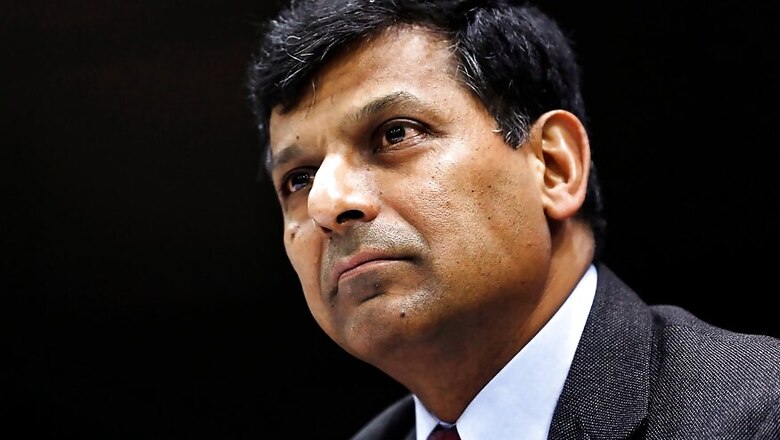
views
Mumbai/London: The reappointment, or not, of Reserve Bank of India (RBI) head Raghuram Rajan has caused enough of a stir to be known locally as "Rexit", a play on Britain's EU referendum, reflecting the esteem in which the governor is held at home and abroad.
Were Rajan to leave when his tenure ends in September, Indian markets are expected to fall to reflect his standing, but some foreign fund managers are of the view that, even if he does go, it would not be the end of the world.
Both reduce the discretion the Reserve Bank of India (RBI) governor has historically enjoyed in setting policy, making the institution more consensus-based and bringing it closer into line with other big central banks like the US Federal Reserve.
"The short answer is that investors, especially fixed income investors, will not be happy if he leaves, and it will surely trigger some sales," said Kieran Curtis, investment director of emerging markets debt at Standard Life Investments in London.
"I think there is a more nuanced view, though, and unless he is replaced by a polar opposite character it may not matter that much," he added.
Rajan declined to comment on speculation over his future, telling reporters on Tuesday, "You will know when there is news." He left rates unchanged, as was widely expected, after the latest policy review.
A two-year extension at the helm of the RBI still looks a real possibility.
As per a report last week, with Prime Minister Narendra Modi behind Rajan, the central bank chief was more likely to be reappointed, despite considerable opposition to him within the ruling Bharatiya Janata Party (BJP).
Rajan may not want the job, and, when a regional newspaper cited sources close to the governor saying he could walk away, markets were briefly spooked.
Emerging market darling
Rajan's appointment in September 2013, as India faced its worst currency crisis in over two decades, and the election of Modi in May 2014, have helped turn India into an emerging market darling at a time when countries like Brazil and South Africa are struggling.
India has attracted $62 billion in foreign portfolio investments since Rajan's appointment, including a yearly record of $42 billion in 2014, and the proportion of overseas ownership in debt and equity markets has hit record highs.
But his quest to use a target to bring inflation under control in a country that frequently faced double-digit price increases was widely seen as a more lasting legacy. In that he was helped significantly by the collapse in crude oil prices.
Even if political winds shift, investors say it would be difficult for India to jettison consumer inflation targeting after formally adopting it as law in 2015.
Future governments and RBI governors could tinker with the target, now set at 2 to 6 percent, but that would threaten India's credit ratings.
Setting policy
India is also setting up a monetary policy committee that will decide interest rates, ending the current system under which the governor decides on policy and writes the statement.
Under a bill passed by Parliament, the panel would be composed of six members - three nominated from the central bank and three from the government.
The RBI governor would have the casting vote in the event of a tie, meaning the position retains significant influence, but the committee, which Rajan supports, is expected to bring transparency to decision making and make the bank less reliant on a single person.
"There is no reason why anyone should assume that the RBI cannot remain a credible institution," said Kenneth Akintewe, a fund manager for Aberdeen Asset Management in Singapore.
"Sensible foreign investors will understand that, with or without Governor Rajan, India has the ability to realise its tremendous potential, but it will take time."
Were Rajan to step down, other candidates would struggle to match his pedigree as former chief economist at the International Monetary Fund and one of the few who predicted the 2007-08 global financial crisis.
Nevertheless, Rajan would be many investors' favoured choice.
"In our conversation with investors, there is no question that people would feel more reassured about their investments if Governor Rajan remained in office, so it is certainly a risk factor," said Kamakshya Trivedi, chief emerging markets macro strategist Goldman Sachs in London.
















Comments
0 comment